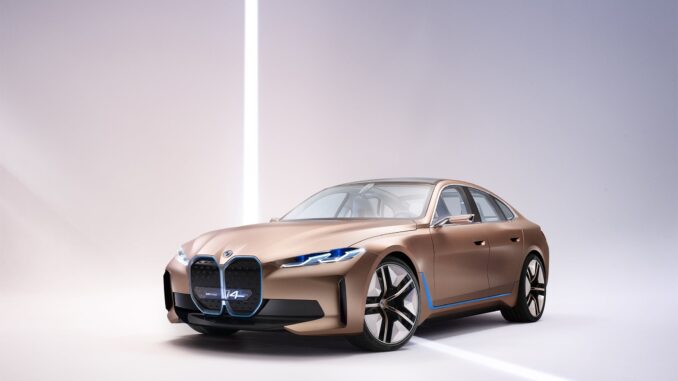
bmw electric car
bmw electric car
bmw electric car
bmw electric car
bmw electric car
bmw electric car
bmw electric car
bmw electric car
bmw electric car
bmw electric car
bmw electric car
bmw electric car
bmw electric car
bmw electric car
bmw electric car
Luxury EVs surge 66% in India in 2025 as wealthy shift from ICE cars
India’s ultra-rich are embracing EVs, with the luxury electric segment growing 66% in 2025; Mercedes, BMW, Audi lead, aided by new launches and better charging infra
India’s luxury car market is being reshaped by electric vehicles (EVs) at a faster pace than any other segment.
India’s luxury car market is being reshaped by electric vehicles (EV) at a much faster pace than other segments, with the country’s ultra-rich now preferring clean fuel over traditional internal combustion engine (ICE) vehicles.
According to data available with VAHAN, the share of EVs in the luxury segment rose from 7 per cent in January–May 2024 to 11 per cent during the same period in 2025, marking a 66 per cent growth in the electric luxury segment.
This trend is reflected in the pre-owned car market too. About 19 per cent of luxury vehicles sold so far in calendar year 2025 are EVs, up sharply from less than 5 per cent during the same period last year, according to Luxury Cart, a leading player in the pre-owned luxury car space. A major reason for the rising interest among premium customers is a series of new EV launches by majors like Mercedes-Benz, BMW, and Audi.
In addition to this, with Jaguar Land Rover set to come up with its largest facility outside the UK at Ranipet in Tamil Nadu by early 2026, with an initial annual capacity of 30,000 units, and Tesla to launch its products, the segment may see more consumer interest going ahead.
Santosh Iyer, MD and CEO of the country’s largest luxury car player Mercedes Benz India, said that the market is moving from “Why EV to which EV?”
“I have been driving an EV for the last 2 years and I don’t miss the ICE vehicle,” he said, adding that the take-rate for EVs is good in the luxury segment.
“January-May numbers show a 66 per cent growth in EVs in the luxury segment and Mercedes Benz has grown by 73 per cent. I think the advantage is there for both mass market and also luxury players in terms of the GST rate and road tax differentials. Mass market EVs are now also getting priced at par with ICE cars, and OEMs are trying to pass on the benefits. This is the intent of the government also so that EVs grow. EVs as a technology is expensive and if this tax difference is not there, then customers on their own are not keen on decarbonising,” he said. EVs are priced 4-5 per cent cheaper at times in the luxury segment compared to their ICE counterparts due to taxation benefits.
“A major reason is the launch of new models in the EV luxury segment, with almost all the companies adding to their product portfolio. More penetration on the EV charging front and driving comfort is adding to that. Range anxiety is also settling down,” said Himanshu Arya, founder and chief executive officer of Luxury Cart. Among the major launches in the last one year is the BMW iX1 at a price tag of ₹49 lakh, which became a game changer in the market. Mercedes-Benz too came out with the EQA, EQS, EQC, and EQS SUV.
Luxury EV sales jumped from 1,223 units (January–May 2024) to 2,027 units in the January–May 2025 period. For the full calendar year 2024, luxury car sales reached approximately 51,000 units, up from just over 48,000 in 2023. The industry expects this to touch 60,000 units in 2025, backed by new launches.
“In 2025 YTD, the overall luxury vehicle market grew 5 per cent, while the electric luxury segment surged 66 per cent. Mercedes Benz India alone saw 73 per cent EV growth, and BMW Group India sold 1,020 BMW and Mini EVs from January–May 2025 (up 110 per cent Y-o-Y), capturing a 58 per cent share of India’s luxury EV market,” the Luxury Cart data said.
Improved charging infrastructure is also adding to the comfort. Audi India now offers customers access to over 6,500 charge points through its application, enhancing convenience for luxury EV owners.
“Private charging companies like Statiq are also aggressively expanding. In metros, you will be able to find an EV charging point within a one-kilometre radius. On highways too, we can find more EV points than gas stations now,” Arya added.
Another reason behind the growth in luxury EV sales is that there are more options in this segment compared to mass-market cars.
“The difference between luxury and mass-market in the EV segment is that there are several product options in the luxury segment for EVs. There are fewer options in the mass-market where ICE vehicles have more options. EV penetration in the mass market is less because not every player has an EV. Only 30 per cent of showrooms in India have an EV, the remaining don’t even have that option for the customer,” Iyer said.
Mercedes, however, will continue to offer choice to the customer for different fuel types. “Our global strategy and also in India is that we allow the customer to decide – we have gasoline, diesel, hybrids and also EV. As responsible luxury OEM we have to offer choice,” he added.
Leave a Reply